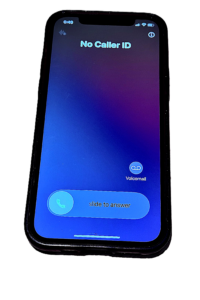Th is blog has been written by Sandra Arsenault, Law Clerk at Fasken LLP.
is blog has been written by Sandra Arsenault, Law Clerk at Fasken LLP.
It was necessary for me to obtain personal information from a beneficiary of an estate this week. I needed their full legal name, social insurance number, birthdate, country of residence, and full address. While on the call, I learned this 98-year-old had recently been the victim of credit card fraud and had also been robbed while attending a bank. I cringed at how inappropriate it felt to ask for their trust in providing me with the information I was requesting. Sadly, these stories are not uncommon. I have engaged with too many people who have been exploited, deceived, or had their safety threatened by bad actors.
Given the state of our current reality, how can we expect trust? Not everything is as genuine as it appears. With Artificial Intelligence (AI) it is easy to create realistic altered photos, videos, and documents. Widespread fake news is nearly indistinguishable from the truth, and true recent news has been so far-fetched it doesn’t seem real. Individuals expected to be upstanding have been exposed for wrongdoing. Mistrust in government and leaders is widespread. Many people have suffered losses in transactions we assumed were secure. Fraudsters persistently target individuals in various areas of their daily life. The magnitude of deception and rampant crime lately has caused us to be jaded and guarded.
As legal professionals working in these complicated times, how do we reassure others of our authenticity and credibility so that we can effectively do our jobs? In my role as a law clerk, I am regularly expected to obtain, confirm, and relay sensitive information with a wide range of individuals.
In my example above, I was asking for those personal details for compliance with the recently imposed trust reporting requirements. I will be making many similar calls as trust returns are due at the end of March.
Wire transfers are the usual method of sending distributions to beneficiaries these days, so I must call individuals to confirm their personal bank account numbers.
Email is used regularly to serve beneficiaries with documents attached which are required in the probate application process.
It is understandable how communications like these could be mistaken for scams. I can see why people are reluctant to share personal information with a stranger like me.
Tips for Reassuring Others and Gaining Trust
- Identify Yourself Clearly: Always provide your full name, job title, and the name of your law firm or organization.
- Offer and Encourage Verification: During phone calls, offer to send an email from your official work address. Encourage others to verify your identity by calling your office directly or searching your name and firm online.
- Use Official Contact Methods: Make calls from an official work number, not a personal cell phone or a number displaying as private or unknown, if possible.
- Provide Documentation and Reference Numbers: Supply official documentation, such as a letter on company letterhead, outlining the purpose of your communication and including relevant case or reference numbers for verification.
- Address Privacy and Explain Necessity: Discuss privacy concerns openly and clearly explain why you need the information, including legal or regulatory requirements, to help diffuse worries. Do not seek any information in excess of that which is strictly required.
- Maintain Professional Credentials: Keep an updated bio and LinkedIn profile with current information. Refer individuals to professional organizations like the Law Society of Ontario (LSO), ILCO, or STEP to verify your membership status if necessary.
- Offer Video Calls or In-Person Meetings: Offer to conduct a Teams or secure video call, or to meet in person at your office for added reassurance.
- Include Trusted Third Parties: Offer to include a trusted third party in the conversation for additional verification.
- Utilize Secure Transmission Methods: Use secure methods for transmitting sensitive information, such as encrypted emails or secure file transfer services, and inform others about the security measures in place to protect their information.
- Be Patient and Professional: Show genuine concern for their needs and challenges and maintain professionalism. Answer questions and address concerns patiently, without pressuring individuals to provide information immediately. Give them time to think or verify as needed.
I hope that by implementing some of these recommendations, you can help mitigate concerns and reassure others of the legitimacy of your inquiries.
Yours authentically,
Sandra

4 Comments
Malcolm D. Burrows
January 10, 2025 - 3:53 pmSandra – Thoughtful, excellent article. Thank you! Malcolm
Fasken
January 10, 2025 - 4:02 pmThanks for reading my blog and for your complimentary note, Malcolm! Much appreciated.
Pam
January 10, 2025 - 6:50 pmExcellent report and timely! Well done! I imagine it is often hard for 98 year olds to deal some technology issues, especially after the fraud they had experienced.
Robert Nicholson
January 11, 2025 - 7:37 pmReally appreciate this kind of insightful post!